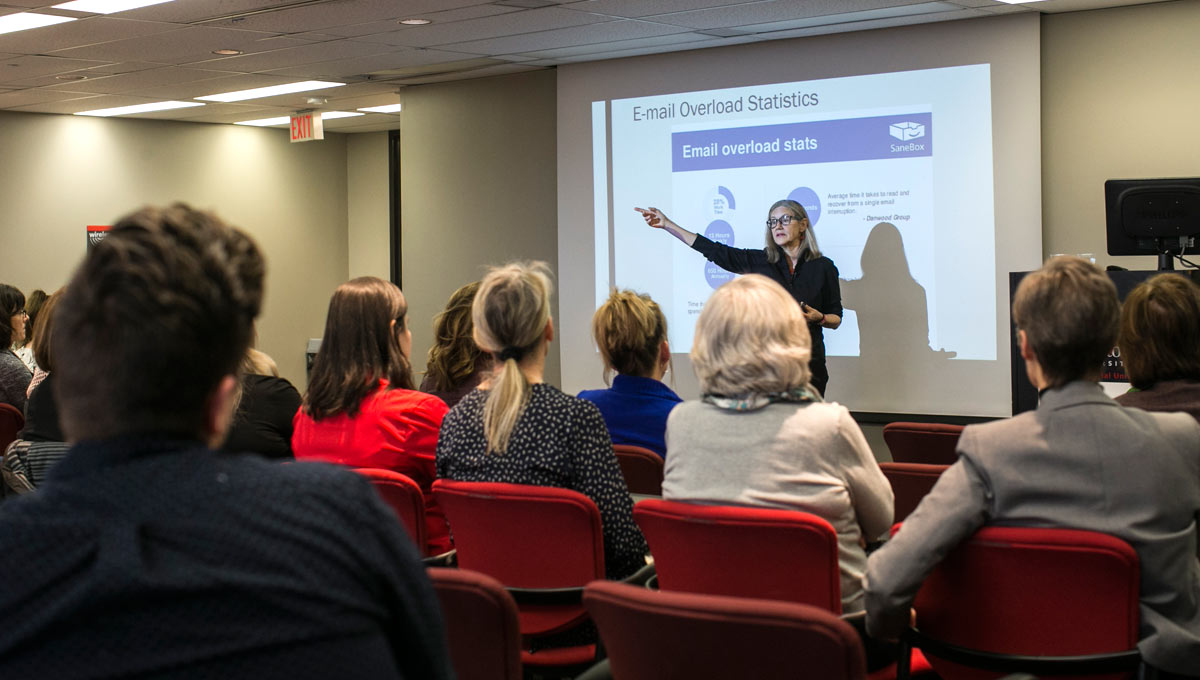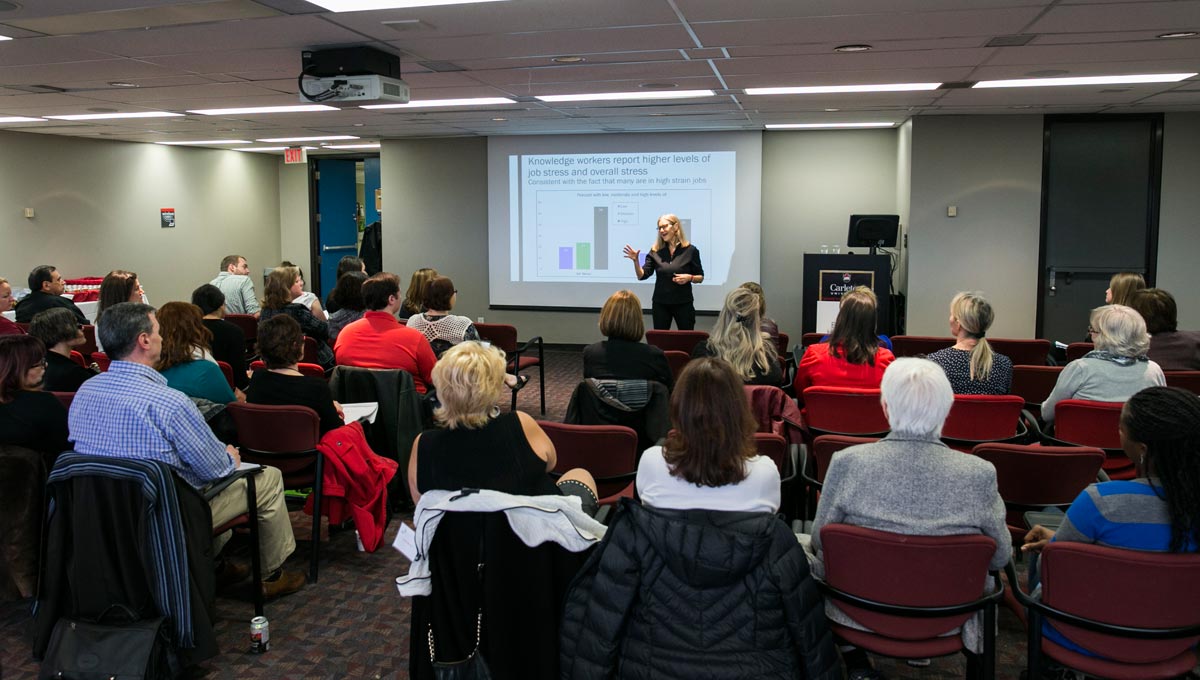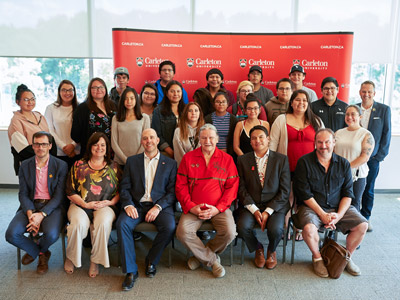By Lesley Barry
If you’re struggling with a heavy workload while trying to raise your kids and help elderly parents, whose health concerns are becoming more demanding, Linda Duxbury wants you to know that you are not alone.
In fact, Duxbury wants your employer to get the message too.

Duxbury, professor at the Sprott School of Business and Canada’s guru on work-life balance
And she’s hoping a new book she’s written will start a national conversation about elder care in the Canadian labour landscape, and the conflict between work and family commitments.
“I wanted it to be in-your-face,” says Duxbury, professor at the Sprott School of Business and Canada’s guru on work-life balance.
Something’s Got to Give: Balancing Work, Childcare and Eldercare, co-authored with long-time collaborator Christopher Higgins, a professor emeritus of the Ivey School of Business at Western University.
“This is a hugely significant issue.”

Work-Life Balance and Elder Care
The book doesn’t just make a compelling business case for employers and governments to rethink their policies and strategies for accommodating elder care demands. It is also, with multiple quotes throughout from embattled Canadians doing their best to cope, an eloquent cri de coeur.
“I hope readers will be reassured to realize that their frustrations, stress levels and guilt are not unusual,” says Duxbury.
As the book points out, while child care and elder care both present challenges, there is joy associated with raising children, whereas looking after aging parents is about diminishment, illness, disability and loss.
“Governments are counting on employees to be caregivers,” Duxbury says. “I want this book to result in action and change, and that action starts with the recognition that employees are caregivers because they love their parents and have to care for them in the absence of tangible supports. How many people have to burn out before we actually start to do something?”
As has happened throughout her 28 years of investigating work-life balance, Duxbury focused on elder care because of personal experience: her own parents were aging.
“My research has always reflected my life and the lives of people around me.”
And the biggest change she has seen in the workplace in that time? “Technology. No question.
“As we’ve downsized and restructured over time, workloads have increased significantly, and because of technology – most specifically email – employees are more likely to work at home in the evening and on weekends, which reduces the time available for looking after family. So stress levels have gone up, along with work levels, unpaid overtime and expectations.”
In other words, technology has exacerbated assumptions about work entrenched in our culture: that working hard is good and working harder is better, that work should come first, and that having any kind of family demand makes you a less valuable employee.
“Because of the baby boomers, for the last 50 years employers have been in the driver’s seat and employees have had to suck it up and be grateful. But as boomers retire, we’re moving into a very different and very interesting situation. If organizations don’t adjust their internal expectations to accommodate the dramatic changes in the external environment, they won’t be competitive.”

Readiness for the Shift Ahead
Employers are a patchwork when it comes to readiness for the shift ahead. Ahead of the curve is Shopify, a company offering maid service to all of its employees – a benefit that can genuinely help with work-life balance.
“Shopify has a very young workforce, and to get and keep that workforce, they have to be different. Companies like Shopify are forcing others to change.”
In the meantime, collectively, we still haven’t figured out how to deal with most pervasive technological change. “Email has become the way we communicate,” says Duxbury, “even though, in many situations, it’s not the best way.”
Rapid email response times give the appearance of productivity, but according to a study recently released by Duxbury and PhD student Andre Lanctot, the more time an employee spends on email, the more overloaded and stressed they are likely to be, and the more likely they are to make mistakes and to be absent from work.
Duxbury, herself, schedules when she checks email and doesn’t respond to any between Friday evening and Sunday at dinner time each weekend. She is equally vigilant in her smartphone use, sharing its number with just five family members and keeping it in airplane mode most of the time.
She also takes the long view on stress. “The academic job, like many others, has hills and valleys, and the real trick is to work through the hills, when things are crazier and you have less control, and then take advantage of the valleys to put family first. Not every day can be in balance, but your life has to be in balance.”

Tuesday, May 9, 2017 in Health, Research, Sprott School of Business
Share: Twitter, Facebook



